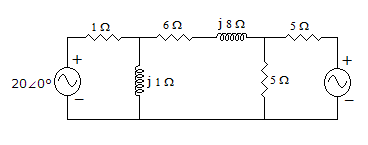ECE :: Network Analysis and Synthesis
-
The zeros of a minimum phase function lie on
-
A network contains only independent current source and resistors. If the values of all resistors are doubled, the value of the node voltage
-
Which of the following statements is correct?
-
Which of the following statements is correct?
-
The response to sinusoidal excitation can be found by
-
The time constant of an R.C. circuit increases if the value of resistance is
-
For an RC impedance function
-
Assertion (A): In high Q circuits poles of Y(s) lie close to ω axis in complex frequency plane.
Reason (R): Q is inversely proportional to damping factor.
-
If the ratio p(s)/q(s) represents a transfer function then
-
In the above circuit, if the power dissipated in the 6 Ω resistor is zero then V is

|
A.
In the magnetic circuit energy is needed continuously to maintain the flux
|
|
B.
In the magnetic circuit energy is needed continuously to maintain the flux
|
|
C.
The flow of current in the electric circuit involves discontinuous expedition of energy
|
|
D.
The flow of current in the electric circuit requires energy for creating the current but not to maintain it
|


 Whatsapp
Whatsapp
 Facebook
Facebook

